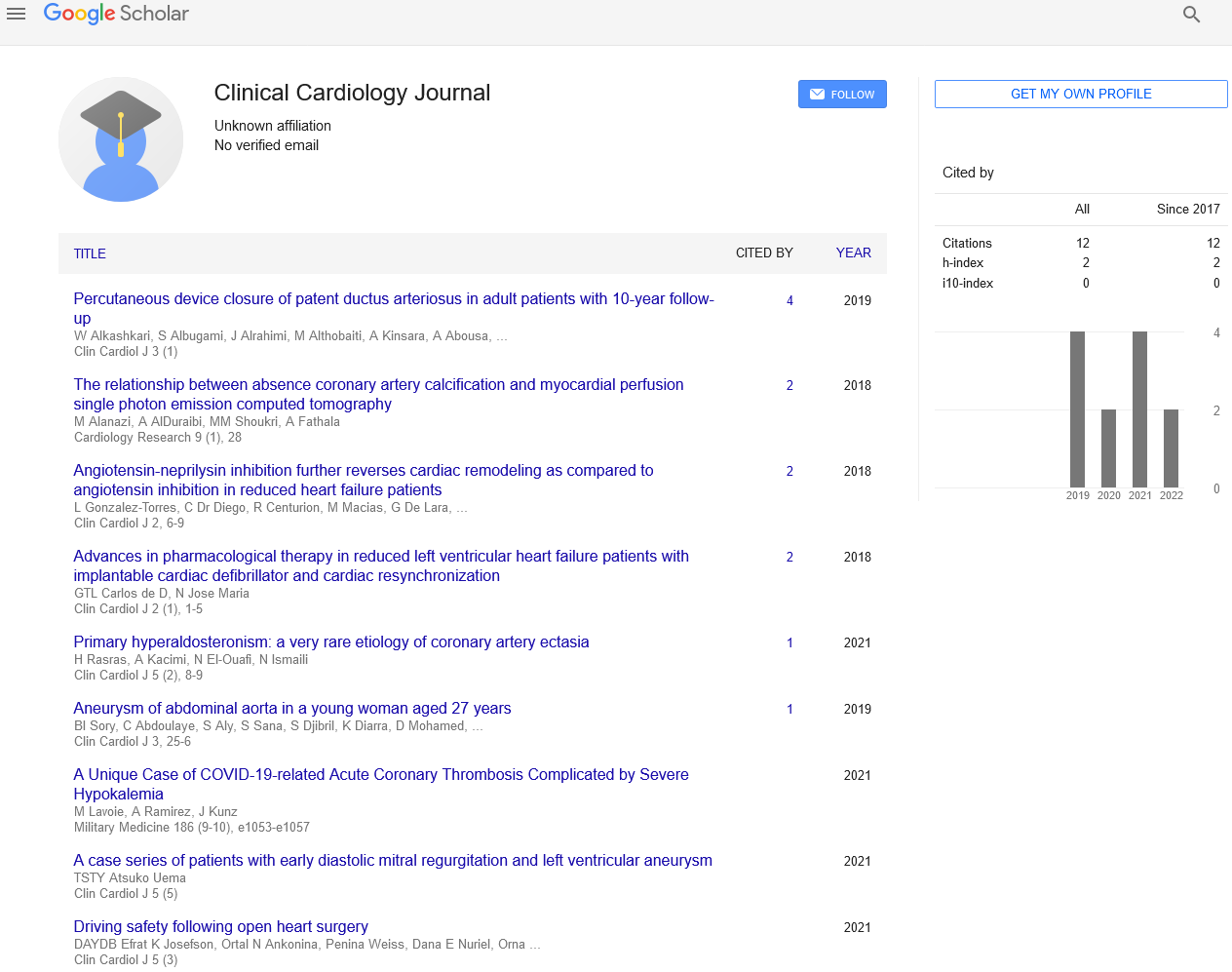Editorial on common medications that causes heart failure
Received: 05-Jan-2021 Accepted Date: Jan 21, 2021; Published: 29-Jan-2021
This open-access article is distributed under the terms of the Creative Commons Attribution Non-Commercial License (CC BY-NC) (http://creativecommons.org/licenses/by-nc/4.0/), which permits reuse, distribution and reproduction of the article, provided that the original work is properly cited and the reuse is restricted to noncommercial purposes. For commercial reuse, contact reprints@pulsus.com
Editorial
Heart disease pervades American health care, which is the principal diagnosis of discharge in people 65 years of age or older. This concern costs $31 billion a year for Medicare, which is predicted to escalate to $53 billion a year in 2030, with associated hospitalization representing the lion's share of costs.
Many drugs of complicated dosage regimens are also taken by people with heart disease. On average, heart disease patients take 6.8 opioid drugs a day, or 10.1 doses. And this calculation doesn't take over-the-counter (OTC) drugs into consideration. It is vital for doctors to know which medications will exacerbate heart failure, whether OTC or prescription.
"According to the authors of a scientific statement by the American Heart Association (AHA) on drugs that can cause or exacerbate heart failure, "It is possible that avoiding drug-drug reactions and direct myocardial exposure will decrease hospital visits, thereby both lowering costs and enhancing the quality of life (HF)
The AHA guideline was established in 2016 and is still quoted as current by AHA, which offers a detailed list of popular medications that cause heart failure and their underlying mechanisms.
Here are 10 examples of medications that could precipitate or trigger heart failure.
• Nonsteroidal anti-inflammatory drugs (NSAIDs)
• α1-blockers
• Antimalarial agents
• TNF-α inhibitors
• Albuterol
• Antineoplastic agents
• Antifungal medications
• Minoxidil
• Calcium-channel blockers
• Antidiabetic medications
Bottom line
In their advice on heart disease, the AHA warned against polypharmacy. "Because of the burden of both cardiovascular and noncardiovascular conditions, polypharmacy is a significant concern in patients with HF [heart failure]," they wrote. It is not rare to have drugs prescribed and modified by numerous doctors, for drug-drug or drug-condition reactions, or to have prescriptions filled at multiple hospitals, several times with little thought. In identifying unsafe and potentially harmful drugs that may worsen HF, the following techniques can be beneficial. At any hospital appointment and admission, they urged healthcare providers to perform thorough drug reconciliation. Clinicians were also instructed to closely analyze the dangers and advantages of any prescription before administering a new agent and to discontinue all products that are not recommended or contraindicated. Combination drugs to treat more than one disease may also be considered to decrease polypharmacy where justified and affordable. Importantly, medical practitioners should stop administering medicines that treat adverse reactions and instead administer medicines as appropriate.





